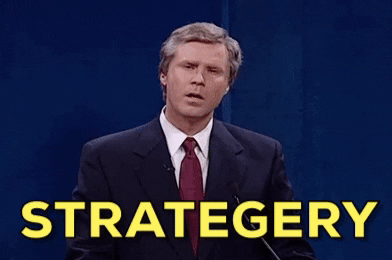What's A Style?
- Jackie Bradbury

- Jan 30, 2020
- 3 min read
One of the more common debates we get to in the martial arts world is arguing about "style".
Which martial arts style is best, which is the most effective, which one is worth studying and which one is not. Frankly, I find the whole debate a little tiresome.
But what IS a "style"?
All that really separates one style from another is one basic thing:
Strategy.
When you study the martial arts, the core assumption is usually that you are training to deal with some sort of violent situation. Your martial art offers a strategy to deal with that violent situation.
That is, on a fundamental level, what makes, say, Brazilian Jiu Jitsu different than Modern Arnis, which is different than boxing. Strategic choices.
Of course, that strategy is influenced by a lot of different factors. These include:
Cultural context
Assumption of what's available to employ in self defense
Assumption of who you're facing in a violent encounter
Assumption of why the violence is happening
Rules that may apply to the violent encounter (including laws)
Ahhh, but Chickie, I can hear you say, the assumptions those other guys are making aren't real. The assumptions WE have are based in what's actually going to happen in the world versus the fantasy land those other people live in.
Breaking news, my friend, because those people you think are totally removed from reality think YOU'RE the nutty one.
Ever hear of the Rashomon Effect? Click on the link for a longer discussion but if you haven't seen "Rashomon"... have you been living under a rock?!?!
You should rent it and watch it - fantastic movie. Here's a trailer for a restored version:
Anyway, the term refers to the phenomenon when different people witness the exact same event describing that event very differently from each other. We perceive reality through the lens of our own biases, so we experience it a little differently from one another.
Our biases make our reality what it is. And we ALL have them, whether we want to admit it, or not.
For example, how many knife defense videos have you seen claiming the attack they're training against is the ONLY way knife attacks EVER happen? I promise you, as soon as someone makes that statement, I can find at least three exceptions to their rule from real-life examples.
Another common assumption we all make is in who's doing the violence, and why.
Most of the time, at least here in the United States, the assumption is "you're getting assaulted by a stranger" or "fight in a social situation" (usually a bar or party or something like that). The perp is almost always a male, often assumed to be big and strong and often young to boot.
Sure, that's a common scenario, but it's not the only one. Old people commit assault and robbery. The person most likely to hurt you physically (or even kill you) is statistically someone you're close to, not some random stranger in a bar. Women can and do initiate violence - both social violence and criminal violence.
I said "United States" above, but is that the assumption in another country, culture, government? Maybe... and maybe not.
I'm going to get off my soapbox on this point now. Being all macho about how awesome your style is and is the only way to deal with the reality of violence is probably a fool's game. Just sayin'.
Anyway, different styles exist because our perception of reality is different. But even if you and I agree on reality, we both still might come up with different ways to deal with the problem.
As the old saying goes, there's more than one way to skin a cat.

Every technique or strategy we employ has risks and rewards. I might solve a problem differently than you do because I think the risks you're taking are unacceptable to me for the reward I get. Or your solution depends on something I don't have, like athleticism, or height, or superior strength, or knees that aren't completely shot. Or it just does't fit my personal moral philosophy. Or it isn't appropriate in my culture.
Honest and good and smart people can legitimately solve the same basic problem in a variety of ways. It doesn't make YOUR solution "incorrect", it's just a different strategy. Their choices don't invalidate yours.
No reason to get all chest-beaty and aggro about it, y'all. In fact, if you keep an open mind and consider different approaches, you might find a good idea you can incorporate into your own strategy.
I can have my strategy, you can have yours, and we can both be right.
Let me know what you think, agree or disagree, in the comments!





Comments